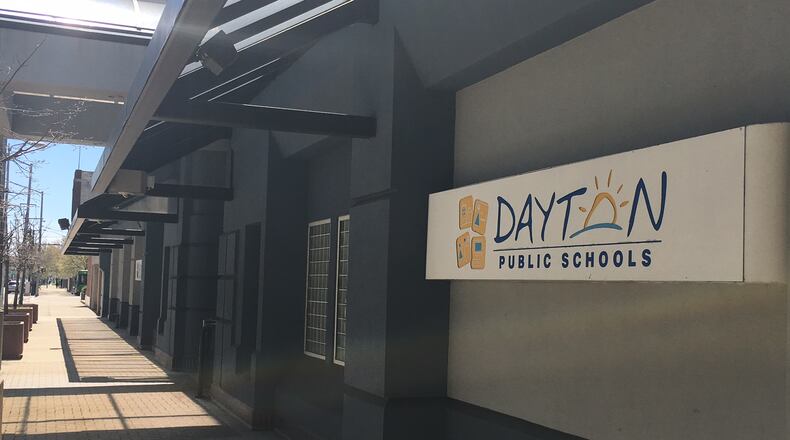RELATED: Dayton schools dealing with multiple lawsuits
Most initiatives list which DPS staffers will lead them, where the money will come from and what individual steps will take place. Board member John McManus applauded the effort, but said he believes Dayton residents want more focus on the immediate issue.
“I love this strategic plan. But I don’t see anything in here in terms of short-term strategic planning to avoid takeover,” McManus said. “It’s great to look at the long term, but we must not forget the immense danger in the short term.”
If Dayton Public Schools receives an overall grade of “F” on September’s state report card (which is largely based on April’s state tests), the district would be taken over by an Academic Distress Commission. State officials would appoint the three-member majority of the ADC, and that body would choose a CEO.
RELATED: Parents react to DPS’ new weather delay policy
Ohio law gives that CEO “complete operational, managerial, and instructional control of the district,” including the right to replace school administrators, hire staff, choose curriculum and set class sizes.
Superintendent Elizabeth Lolli said the short-term efforts to avoid takeover have been going on all year — collaborating with state education officials, improving teacher training, working on attendance and more.
“Everyone’s watching to make sure that what we’ve trained in is being implemented,” Lolli said. “The urgency is the monitoring. The teachers and principals in the district have never been this closely monitored.”
Lolli said the next round of “data meetings” to review how well students are learning content begin Feb. 20. She said while there are ups and downs, teachers are generally getting more comfortable with the strategies the district trained them on last fall.
RELATED: DPS Town Hall on engagement draws light crowd
She said student results on diagnostic testing so far is mixed from school to school.
“There are some buildings where the implementation cycle is very strong, and we’re seeing gains there,” Lolli said. “There are others where the cycle is a little behind, and we’re not seeing (as much improvement) there.”
McManus suggested DPS send a separate document to families along with the strategic plan, spelling out what district leaders are doing to avoid takeover. School board President William Harris said he and Lolli had already met with key constituents on that topic — news that took some board members by surprise.
But McManus said he wants the message to go out to Dayton families, not just business and community leaders. Board member Sheila Taylor agreed, saying DPS needs to communicate better or it risks losing more students next fall to charter and Catholic schools.
EDUCATION: Top state and local school stories of 2018
Lolli said some “branding” mailers touting DPS high schools will go out soon, adding that if the board wants to add an open letter to the community on DPS’ anti-takeover efforts, the district can do that.
McManus said DPS needs to understand the “fierce urgency” of the next 6 ½ weeks of school before state testing.
But board member Mohamed Al-Hamdani stressed balance between the two approaches, saying the district needs a long-term focus, too, to avoid being caught in an endless cycle of Band-Aid fixes.
“I think we have to do the long-term and short-term (work) at the same time,” Al-Hamdani said. “They keep shifting the goals on us, but I think if you have a good culture and create the right atmosphere — which is what the superintendent is trying to do in all of our schools — then you can avoid having this happen every few years. … The long-term is just as important as short-term.”
About the Author

